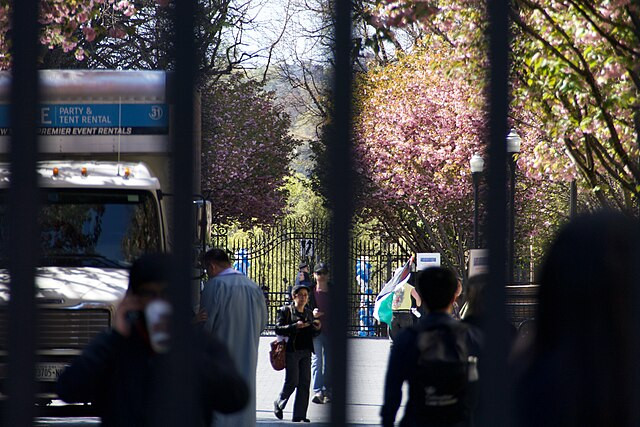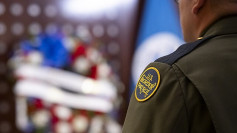Federal immigration authorities have arrested a second individual involved in pro-Palestinian protests at Columbia University, revoking student visas as the Trump administration intensifies its crackdown on demonstrators. The Department of Homeland Security (DHS) announced Friday that Leqaa Kordia, a Palestinian student from the West Bank, was arrested for overstaying her student visa, which was terminated in January 2022 due to "lack of attendance."
The move follows the revocation of a visa belonging to Ranjani Srinivasan, an Indian doctoral student at Columbia, whom DHS accused of "advocating for violence and terrorism." Srinivasan left the country voluntarily on Tuesday after her visa was canceled. Officials did not immediately provide evidence linking her to violent activities, but the administration has applied such terminology to critics of Israel's military actions in Gaza.
Homeland Security Secretary Kristi Noem defended the administration's actions, stating, "It is a privilege to be granted a visa to live and study in the United States of America. When you advocate for violence and terrorism, that privilege should be revoked."
The recent arrests have heightened tensions on Columbia's campus, which has been at the center of pro-Palestinian activism. On Sunday, federal agents arrested Mahmoud Khalil, a Palestinian activist and Columbia graduate student, who had played a key role in last year's campus protests. His detention led to additional scrutiny of the university's international students.
Rubio indicated that the administration would continue reviewing student visas and removing individuals whose actions, had they been known beforehand, would have led to their exclusion from the country. "But now that they've done it, we're going to get rid of them," he said.
Khalil, who is a legal U.S. resident married to an American citizen, was arrested by federal agents as he returned to Columbia's residential housing after dinner with his wife. His lawyers allege that he was transported to Louisiana under harsh conditions, comparing his experience to a kidnapping. "Throughout this process, Mr. Khalil felt as though he was being kidnapped," his legal team wrote in a lawsuit filed in Manhattan federal court.
According to court documents, Khalil was initially taken to an ICE detention center in New Jersey before being flown in handcuffs and shackles to Alexandria, Louisiana. He is currently being held at the Louisiana Detention Facility in Jena. His lawyers argue that his arrest violates his First Amendment rights, as he was an outspoken critic of Israel's military campaign in Gaza.
President Donald Trump praised Khalil's arrest earlier this week, calling it the first "of many to come." He vowed on social media to deport students engaging in what he described as "pro-terrorist, anti-Semitic, anti-American activity."
Columbia University has not directly addressed the arrests but has attempted to reassure international students. Interim President Katrina Armstrong acknowledged the tensions, writing in an email to students that DHS had served judicial search warrants at university residences but had not seized any items.
The university remains under pressure after the Trump administration announced it would withdraw $400 million in federal funding due to Columbia's alleged failure to protect Jewish students from harassment. The administration has demanded policy changes, including a ban on face masks at protests and expanded law enforcement authority to remove demonstrators.
Some students say the crackdown is already having a chilling effect. "We have students who are so scared about the possibility of retaliation that they're too afraid to call public safety if something happens to them," said Sebastian Javadpoor, president of Columbia's student-led Democratic club.






